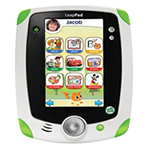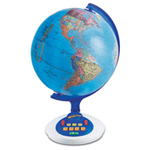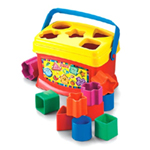5 Benefits of Play for Children
Children learn about the world around them and develop mentally and physically through play. Researchers have found that unstructured play not only keeps kids occupied and entertained, but it’s key to a children’s natural development. It’s so important, in fact, that in 1989 the United Nations High Commission for Human Rights designated play as a child’s natural right.
Children the world over find ways to play, even when they grow up in poverty-stricken, war-torn environments. Studies have consistently shown that play grants children healthy minds, bodies, and spirits. While toy manufacturers develop new technology, concepts, and designs, it’s ultimately the children who make the rules when it comes to playing with toys. They unlock a toy’s hidden properties like magic, sometimes in ways we would never expect, because of their limitless imaginations.
Consider what researchers have discovered about the “science” of play:
- Playing with toys allow children to unlock the mysteries of the world around them. Toddlers in particular soak up new concepts, ideas, and skills at an incredible pace. Toys help improve young children’s brain development.
- Children naturally try out adult roles as they play, which is why playing house is an age-old activity. By operating in a world of their own creation, kids prepare themselves for the real world on their own terms and in a safe, manageable environment.
- While organized sports and adult-supervised play have their own benefits, children still need unstructured play time to work out problems themselves and develop their own interests and passions. When children participate only in games structured by adults, they don’t learn how to develop and follow their own rules.
- Children who play together in an unstructured setting learn about fairness, sharing, resolving conflicts, compromising, and sticking up for themselves.
- When parents play with their children, they develop stronger bonds because the adults remember how differently children view the world. Parents can learn how to communicate with children on a level they’ll understand, and adults will be better able to offer guidance and nurturing.
While some schools have begun reducing play time to spend more time on academics, it’s crucial that children have enough opportunities to discover the world for themselves, work out their problems and fears, and develop cognitively, psychologically, and physically. The best way they can do this is through coloring, building with blocks, playing make-believe, and reading stories.
 |
Brittany Rowland researches new developments in Appliances, Kitchen and CE products features with a vigor to which few would aspire… but someone has to do it. See more about Brittany |
Related Articles
Toys That Help Kids Read

If your children are just learning how to read, then you understand how important it is to encourage them to practice and develop reading skills. It’s helpful to look for ways to incorporate reading lessons into everyday situations—for instance, asking kids to sound out words on billboards as you’re driving… [more]
A Child’s Development level from Ages 5-7

Once your child reaches early school age, he or she will have already become fairly self-sufficient and will only become more so. Each day provides new opportunities to learn, explore, and discover more about the world. The educational toys that kids at this developmental stage play with enhance the skills that they’re learning in school…. [more]
Related Top 10 Lists
Best Toys for Children Ages 5-7

For school kids ages 5 to 7, the best educational toys disguise learning as fun and games. We found the following 10 toys to be exceptional for such qualities as… [more]
Top 10 Educational Toys for Kids Ages 8-12

As children advance from the 3rd grade to preparing for middle school, they learn even more complex subjects in school: history, science, social studies, health, etc. We looked for educational toys that not only enhanced the skills kids possess from ages 8 to 12, but made learning and discovering new things fun and entertaining. Our top 10 toys involve: 1. Fun for … [more]
Top 10 Educational Toys for Children Ages 2-4

Toys for tots ages 2 to 4 are not only entertaining but educational, helping them develop fine motor skills, concentration, dexterity, problem solving, creative play, and imagination. As we looked at a number of toys for children in this age range, we looked for a number of important factors, including: 1. Educational value, 2. Durability, 3. Easy storage and … [more]
Filed Under: Sports

